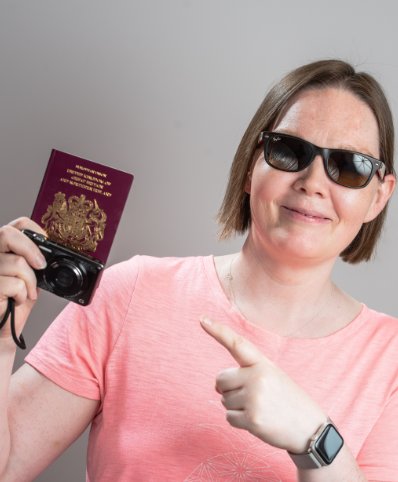9 Crown Row, Bracknell, Berkshire, RG12 0TH


26 Oct 2016
When it comes to renting out a property or a room, many landlords and renters confuse the terms “tenant” and “lodger.” While both involve individuals occupying a part of a property, the legal distinctions are significant and can affect everything from tenancy agreements to eviction procedures. Understanding these differences is crucial for both parties, as the rights and responsibilities of tenants and lodgers differ in important ways. If you’re unsure about these distinctions, seeking advice from estate agents in Bracknell can help clarify the process and ensure you make informed decisions regarding your property.
A tenant is an individual who rents a property from a landlord, typically entering into a formal lease agreement. Tenants are granted exclusive rights to live in and use the space they are renting, and they have a higher degree of control over the property compared to lodgers.
In most cases, tenants rent a self-contained living space, such as an entire flat or house, which includes areas for living, cooking, and washing. Tenants often have a long-term lease (usually for 6 months or more) and enjoy specific legal protections under UK law.
A lodger, on the other hand, rents a room within a property that the landlord also occupies. The key distinction here is that the landlord and the lodger share the living space. Unlike tenants, lodgers do not have exclusive control over the property they live in. The landlord’s presence in the same property and their right to access certain parts of the living space are central to the nature of a lodger agreement.
Lodgers are usually on more flexible agreements that tend to be short-term, and the terms of occupancy can be changed with shorter notice compared to tenants. They are typically not entitled to the same level of legal protection as tenants, meaning landlords have more flexibility to end the arrangement without going through formal eviction procedures.
While the basic definitions may help clarify things, the following five key differences will give you a deeper understanding of how tenants and lodgers differ legally and practically:
One of the main differences between a tenant and a lodger is the issue of exclusive possession. A tenant generally has exclusive control over the property or their rented space. This means the landlord cannot enter without permission unless there is a valid reason or emergency.In contrast, a lodger shares the property with the landlord, and the landlord retains a level of access. For instance, a lodger might have their own room, but the landlord may use shared spaces like the kitchen and bathroom. As a result, the lodger doesn’t have exclusive possession of the entire property, meaning the landlord has more control over the living situation.
A crucial requirement for someone to be classified as a lodger is that the landlord must live in the same property. The lodger’s living arrangement is secondary to the landlord’s use of the space, and the landlord’s presence impacts the nature of the agreement. This is different from tenants, who often rent entire properties without the need for the landlord to be on the premises.For example, if a person rents a room in a flat but the landlord lives elsewhere, the individual would be considered a tenant, not a lodger, despite renting a room. The legal relationship is entirely different based on the landlord’s occupancy.
Tenants have stronger legal protections than lodgers. Once a tenant has signed a lease agreement, the landlord cannot ask them to leave without following formal legal procedures, which may include serving a notice and obtaining a court order for eviction.Lodgers, on the other hand, don’t have the same legal protections. If the landlord wants to evict a lodger, the process is far simpler. The landlord may only need to give short notice (e.g., a few weeks), and the lodging arrangement can typically be ended more easily.
Another significant difference is the right to lock the door to a private room. In general, tenants are allowed to lock the door to their rented space, especially if the property is entirely self-contained. The lock on the door provides tenants with privacy and a sense of security in their own living space.However, lodgers are not allowed to lock their bedroom doors. This is because the landlord retains a level of control over the property, and the lodger does not have exclusive control over the room. A lodger’s room may be locked only if the landlord allows it, but even then, it is not typically considered part of the lodger’s exclusive rights.
If a landlord provides services like cleaning, providing meals, or changing bedding, this is a strong indication that the occupant is a lodger and not a tenant. These services make the tenancy agreement more akin to a hotel stay or guest arrangement, where the occupant is essentially paying for the use of a room but does not have exclusive rights to the property.Tenants usually do not receive these types of services as part of their agreement, and they are more likely to take care of their living space independently. If a landlord provides such services, it can impact whether someone is legally considered a tenant or a lodger.
The difference between a tenant and a lodger is not just a matter of terminology; it has significant legal and practical implications.
For landlords, understanding the difference is essential to avoid running afoul of tenancy laws. example, evicting a tenant without a court order can lead to legal consequences, but with a lodger, landlords have much more flexibility.
For renters, knowing whether they are tenants or lodgers can affect their rights. Tenants have a higher degree of security and legal protections, while lodgers can be more easily asked to leave.
Additionally, tax laws vary depending on whether you have a tenant or a lodger. For example, under the Rent a Room Scheme, landlords who rent a room to a lodger may be eligible for tax exemptions on rental income, which isn’t the case with tenants.
The distinction between a tenant and a lodger is important in both practical and legal terms. While both types of occupants may share similar living arrangements, the key difference is the amount of control and legal protection they have. Landlords should carefully consider whether they are renting to a tenant or a lodger, and make sure the tenancy agreement clearly reflects the terms of the relationship.
If you’re unsure about the difference between a tenant and a lodger or need guidance on renting out your property, why not reach out to our Bracknell lettings team for a chat? We’re here to help and offer expert advice on how to navigate the complexities of the rental market.
Related articles:
Get in touch

Marketing & Operations Manager
Helen is Nick’s sister and she successfully set up and established our Lettings Department back in 2013. Having spent much of her career prior to DY working in marketing, Helen now heads up our Marketing & Operations department. This suits her organisational skills, creativity and keen eye for detail perfectly! She loves taking long walks with her Labrador Finn and when time permits, travelling and visiting new places around the globe.
Top of my bucket list is…
To keep travelling, visit more new countries and ultimately, one day explore Europe in a (very comfortable!) camper van.
My guilty pleasure…
Ben & Jerry’s cookie dough ice cream. Probably best to just not buy it!
When I was younger, I wanted to be…
Less shy/more confident. Still working on it…
If I were a superhero, my superpower would be…
To help find a cure for cancer and dementia. Here’s hoping.
On Sunday morning, you can usually find me…
Up bright and early for a long dog walk in the countryside.
You might be surprised to know that…
One of my earliest qualifications as a teenager was as a Clarks trained shoe fitter. Ohh, all those back to school shoes!